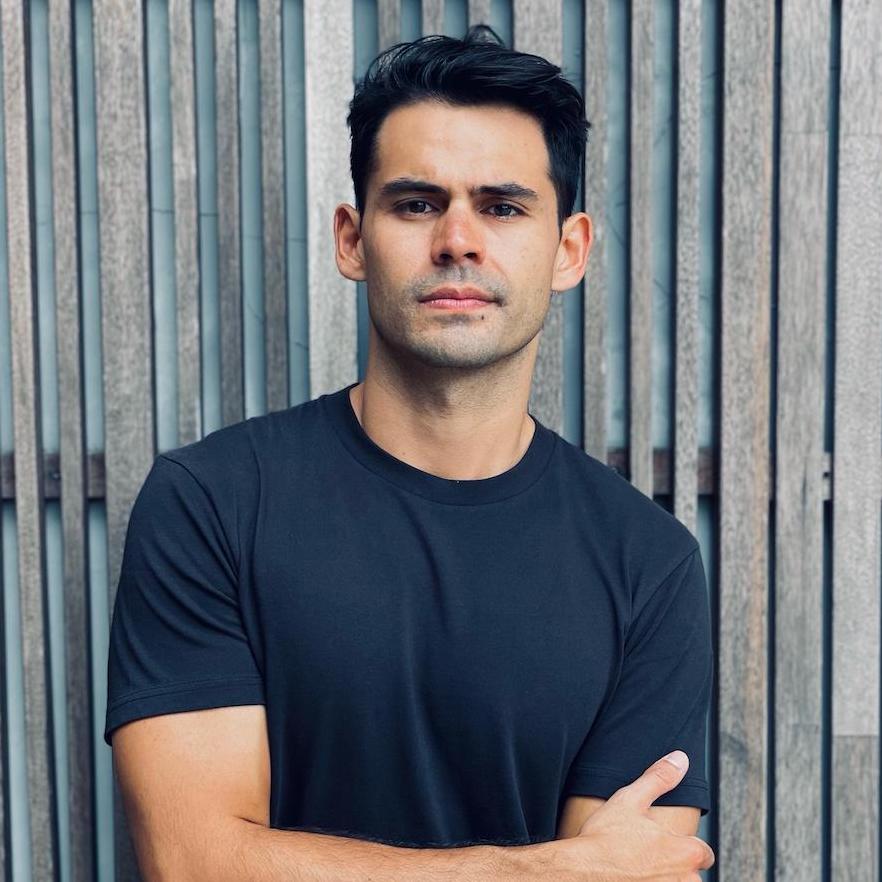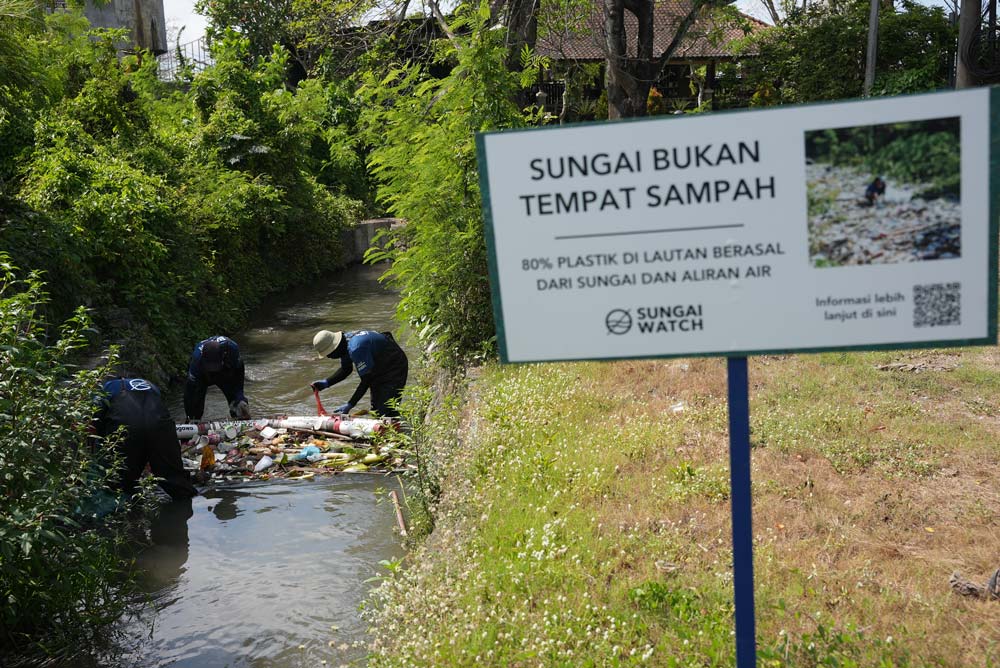
Despite being one of the busiest tourist seasons for the island, the end of the year also happens to be one of the environmentally worst times for Bali. The wet season is like a purge, where the cleansing rains clear out the scattered litter around the island, and send it out to sea, only for ensuing swells and waves to bring it all back to the beaches for all to sea. It is, sadly, Bali’s yearly embarrassment, affecting both the island and its ecosystems.
Yet, the community does not stand idly by. A number of great individuals and organisations have made it their objective to keep Bali clean, foremost to mitigate the infamous waste crisis. However, other environmental missions exist too, from protecting Bali’s coral reefs and conserving an endemic species to keeping an eye on the island’s fragile clean water ecosystems. Here we share a handful of Bali’s eco-heroes — and there are many more! — to showcase their great efforts and indeed how you can take part in their mission.
Gary Bencheghib
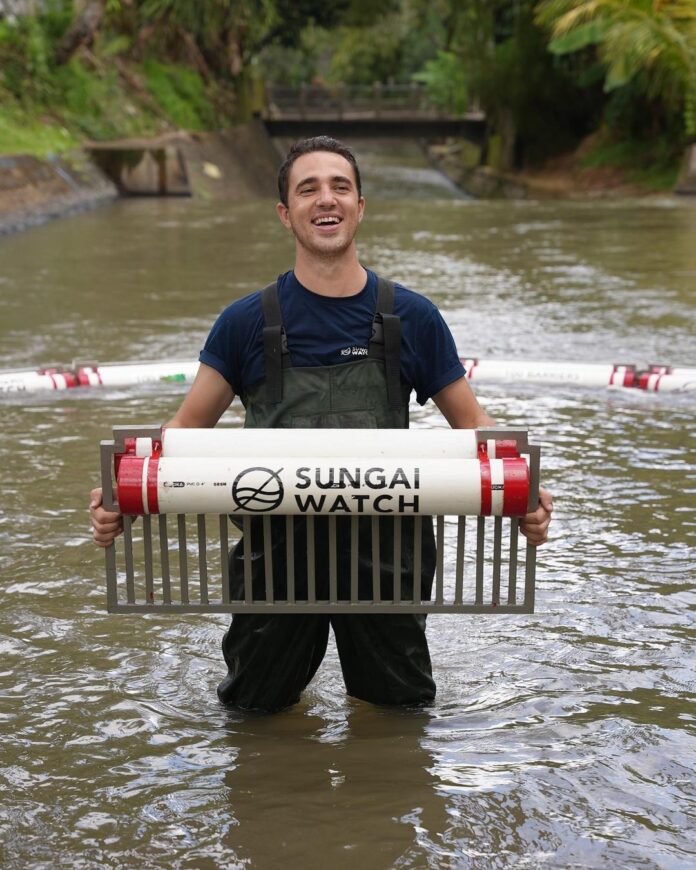

It’s rare for an environmental activist to become a household name but it seems Gary Bencheghib has achieved this through the work of Sungai Watch, amongst Indonesians and foreigners alike. Founded by Gary and his siblings Kelly and Sam, Sungai Watch (‘River Watch’) is a non-profit organisation on a mission to stop plastic waste from going into the ocean by protecting and cleaning the main ‘arteries’ to the sea, i.e. the rivers!
They designed and installed their first trash barrier in Bali back in 2020, and from their 2022 annual report have installed 180 trash barriers across several rivers across Bali. With a team 110 people strong, Sungai Watch collects the rubbish that builds up behind these barriers, sorts it and processes it for recycling and up-cycling. In 2022 the organisation removed and processed 535,246kg of non-organic waste which was polluting Bali’s waterways and headed for the sea. Needing to find a way to create value and long-term solution from the waste they collected, Sungai Watch developed up-cycling solutions where low-value plastics (like plastic bags and sachets) could pressed into sheets, bricks and tiles, then to be used into building products from furniture and homeware to flooring and walling — even going as far as designing a modular home out of the materials! They also compost their organic waste or make it into ‘biochar’.
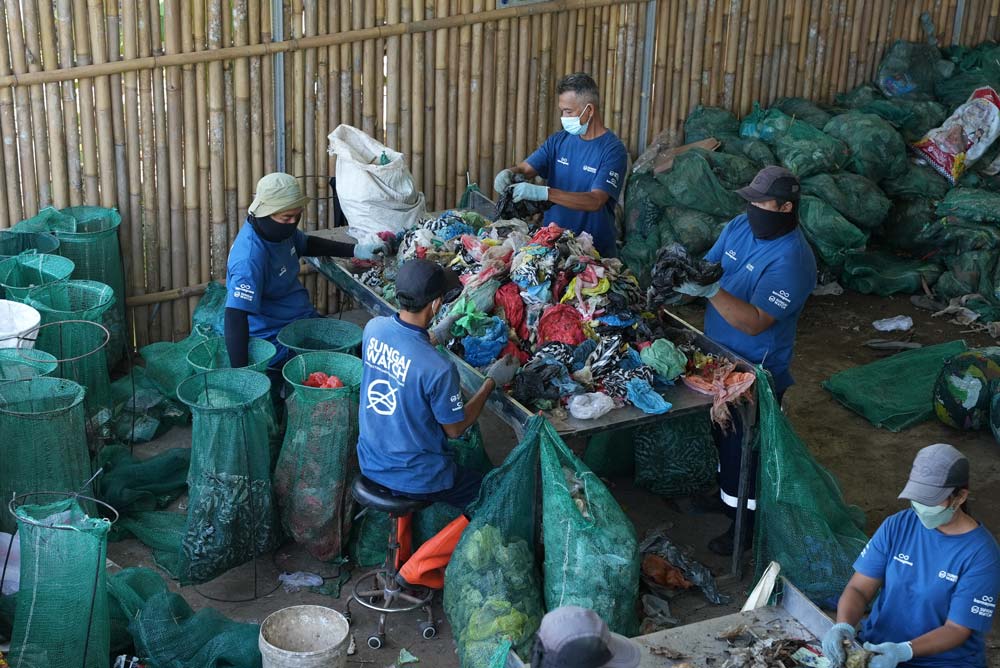
Outside of the physical work Sungai Watch and Gary do, through their media updates they have become a direct window for the public to see and understand the scale of waste management problems found in Bali and other areas of Indonesia. Documenting and sharing their on-the-ground work has created huge awareness on just how pervasive waste issues really are. “There continues to be an out of sight, out of mind mentality,” Gary once shared with NOW! Bali, whose own Instagram has become a hub of informative public service announcements on environmental issues, but also the positive solutions and public partnerships that have been created and fostered. Every single piece of collected waste is audited by Sungai Watch and at the end of each year an impressive Impact Report provides a snapshot of the biggest polluting companies as well as the types of waste collected, creating invaluable data on the behaviours of consumers and the effects of consumer products.
Sungai Watch accepts donations, but also welcomes volunteers to help in waste collection at the rivers or processing at one of their sites.
@sungaiwatch | www.sungai.watch
Paola Cannucciari & Ketut Mertaadi
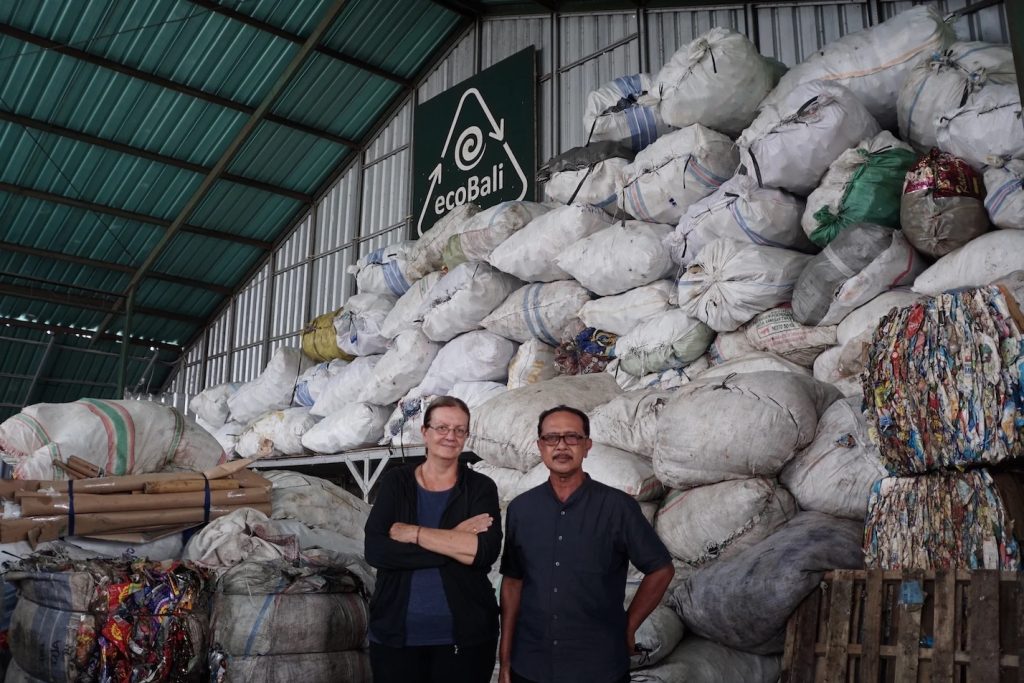
Established in 2006, ecoBali was founded to provide responsible waste management in Bali. Having witnessed the effects poor waste infrastructure on the island — littered beaches and rivers, piling landfills — husband and wife duo Paola Cannucciari and Ketut Mertaadi sought to provide a service that could help to ease the mounting crisis.
Italian-born Paola has worked across Indonesia since 1990, addressing wildlife conservation efforts across the country for UN-backed programmes. In 2003, having married and settled in Bali, she widened her environmental scope and became interested in waste management issues, Paola continued consulting for international NGOs like Swisscontact, GIZ, BEDO and more.
Then in 2006, with a shared interest in preserving the environment, Ketut and Paola started ecoBali, offering waste separation, collection and recycling to Bali homes and businesses. Operating as a private enterprise, ecoBali could provide the public with choice, i.e. a service outside of public waste infrastructure that was ethical, responsible and effective.
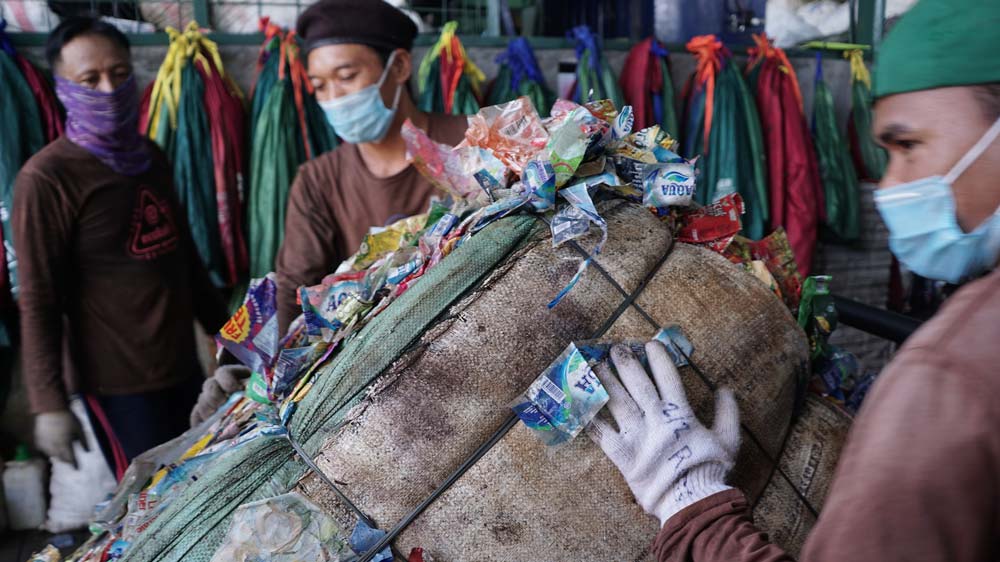
The operation has grown substantially since its founding, with three impressive sorting and material recovery facilities in Dalung, Tibubeneng and Kerobokan. “In our case, we achieve a high rate of recovery of materials, around 85-90%. To achieve this, the key is waste separation at source, run an efficient and effective sorting system and ensure that we have partnerships with recycling factories. We must also find as many solutions as possible for materials, including low value flexible plastics,” Paola shares with NOW! Bali.
ecoBali also offers composting systems, event waste management, consultation for businesses, and importantly, education and training sessions around Bali to improve behaviour and knowledge among local communities and the younger generation. Up to 4 tons of household, business and hospitality waste is collected everyday. Without ecoBali, this waste would go to landfill. To spread their services to wider groups, they have also empowered shared Waste Banks for groups to use collectively.
“What we do need to scale up is to establish increasing number of partnership with villages and businesses especially the one involved in the tourism sector and related services so that together we can make a sizeable difference,” announces Paola.
Sayan Gulino
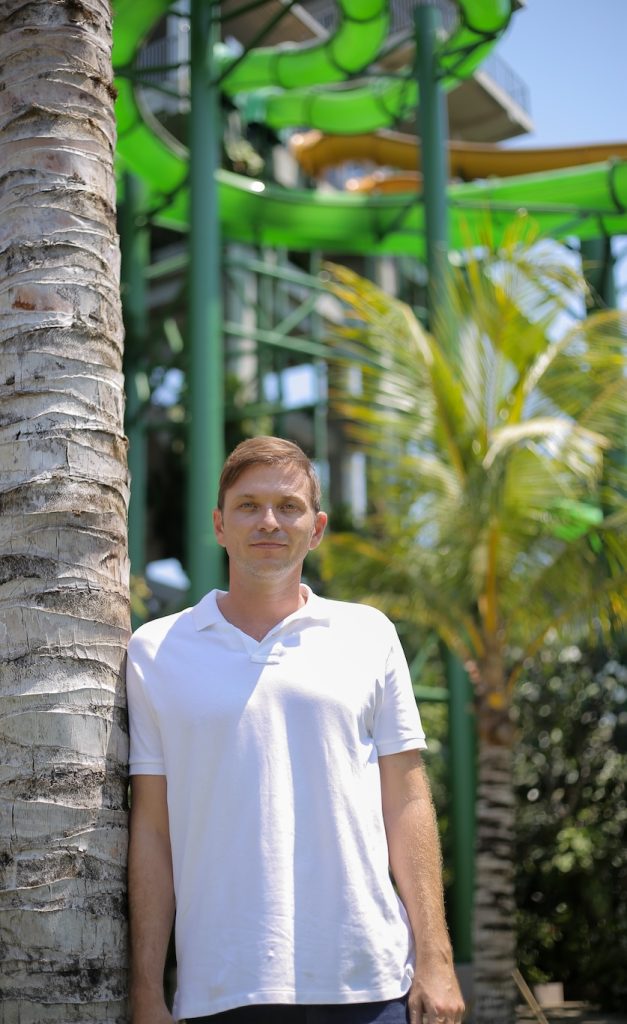
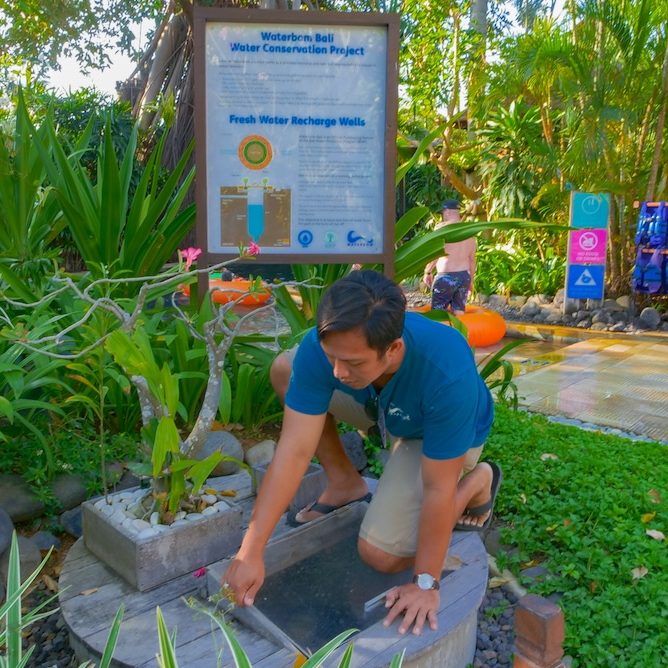
Having recently celebrated its 30th anniversary, Waterbom Bali is an institution on the island. But what business does a waterpark have being on this list? It is in fact Waterbom’s long history that makes it worthy of mention, as a tourist operation that not only has its own future in mind, but also the future of Bali.
During its initial construction, Waterbom founder Santo Gulino was adamant that not a single tree be cut down. Why? As not to detract from the inherent value that Bali has to offer. Today, the park has a new Company Mission: to become the most sustainable waterpark in the world. This is very much testament to Waterbom’s current CEO, Sayan Gulino, who takes his father’s principles even deeper. Today, only 5% of the park’s waste goes to landfill; they operate a closed-loop water system and integrate groundwater recharge wells across the property; in 2018, they became the first tourism operation in Bali to be carbon neutral and have pledged to be net-zero by 2033. Waterbom Bali has also been EarthCheck Gold Certified since 2016, recently won the prestigious Grand Title Award for Sustainability and Social Responsibility at the 2023 Pacific Asia Travel Association (PATA) Gold Awards.
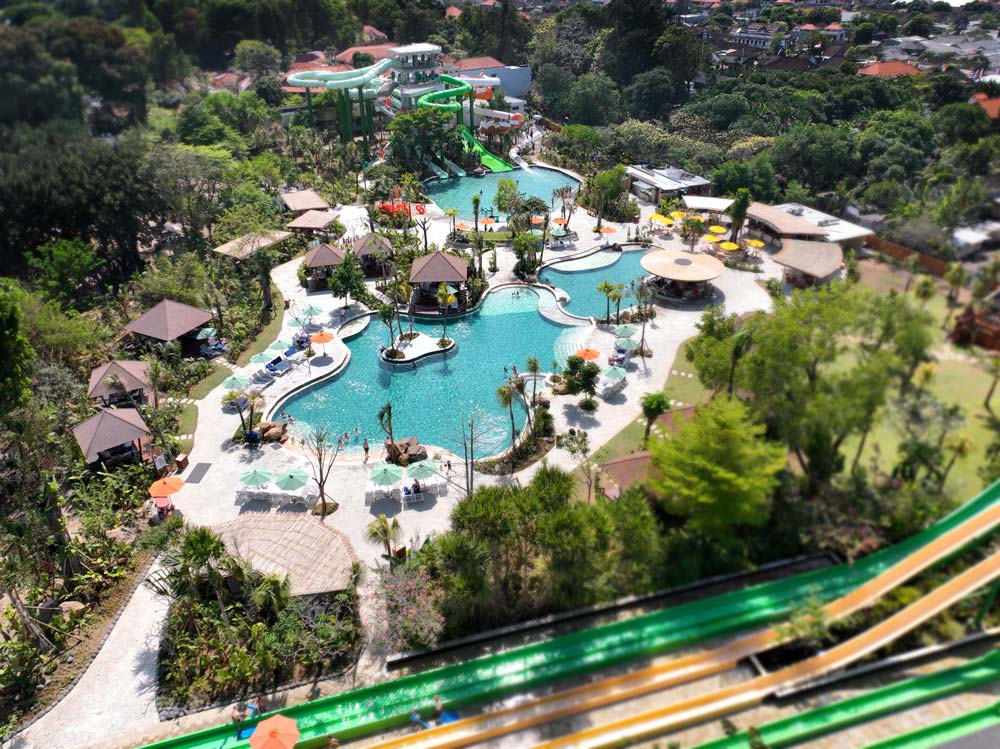
But why do this? Why invest so much on sustainability? For Sayan, growing up here has certainly been a factor, fostering a deep connection to Bali. “Even in my early teens, I was nostalgic of the old Bali. This was before many of the major changes had even taken place,” shares Sayan. Such was his passion that he delivered a TEDxUbud talk in 2014 titled ‘Running out of water, running out of time’ to bring awareness to Bali’s water issues, in 2018 he then released a short documentary on the same issue, titled ‘Balancing the Waters’.
The history matters. Waterbom Bali, and other such long-time institutions, were started by business owners who were far more integrated into the community and thus cared and respected for the state of their island home. They have the island’s best interests at heart, not seeing it as the current hotbed to exploit and plunder. This is a legacy that has clearly been passed to the next generation. “Business growth doesn’t have to be measured financially. Growth can be based on our impact,” closes Sayan. If only more of today’s new business owners had the same perspective.
Rili Djohani
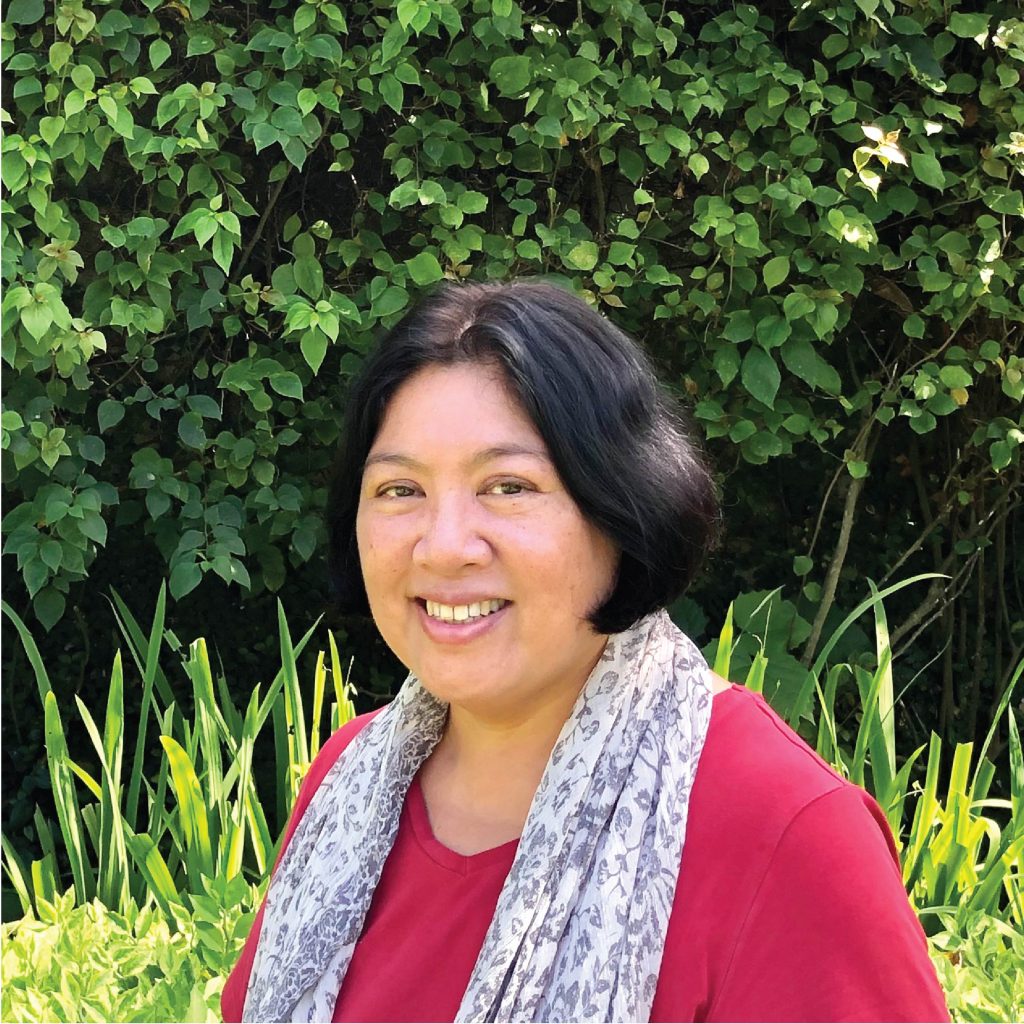
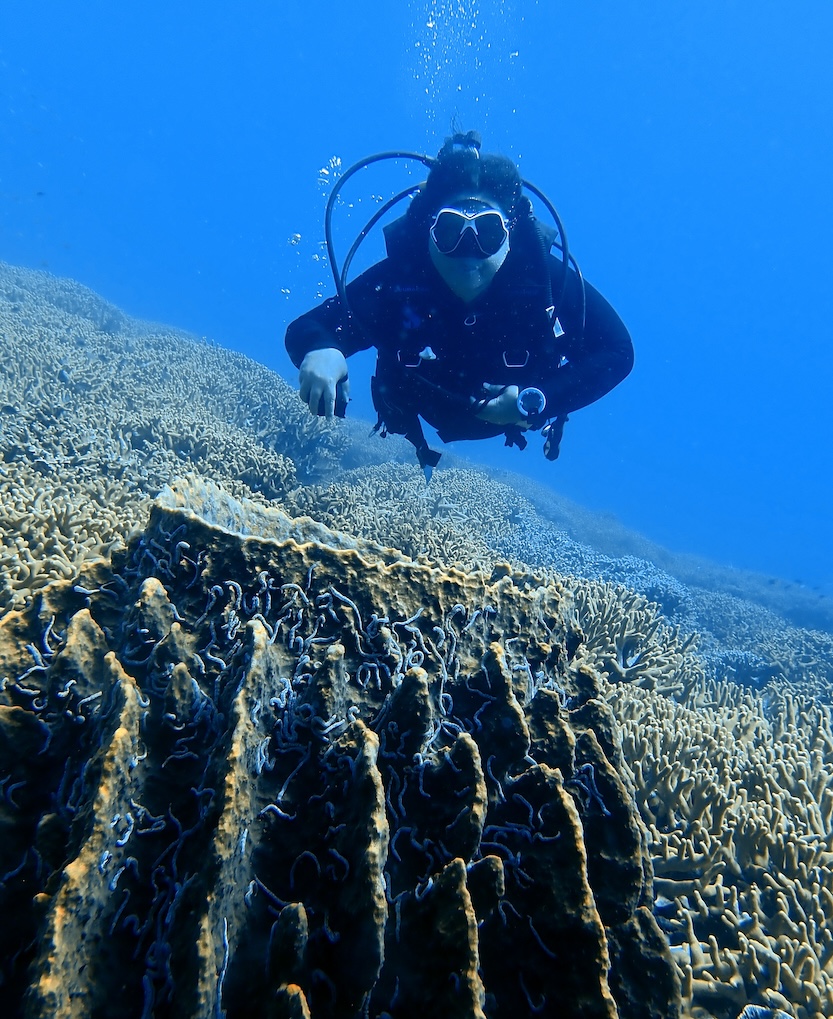
The Coral Triangle is the world’s epicentre of biodiversity, containing 76% of all known coral species on earth. Since 2010, the Coral Triangle Center’s (CTC) mission has been to protect this crucial area by training and educating people, across multiple scales, on how to protect these fragile marine environments.
At the helm of the foundation is Rili Djohani, a trained marine ecologist who worked for The Nature Conservancy from 1995 to 2010. Through her role, she worked closely with communities, governments, NGOs, private sector, bi-and multilateral agencies to improve the management and financial sustainability of marine protected areas (MPAs) across the Coral Triangle region. “I am just mesmerised by the sheer beauty of the coral reefs in Indonesia. Diving and seeing underwater films are what initially piqued my interest,” shares Rili.
As an avid diver, she had seen the destruction people were causing upon fragile habitats and coastal systems and sought to increase efforts in Indonesia. Thus she, along with George Tahija, Hasyim Djalal, and Made Subadia, founded CTC as an independent Indonesian foundation in 2010, where she remains as Executive Director to this day.
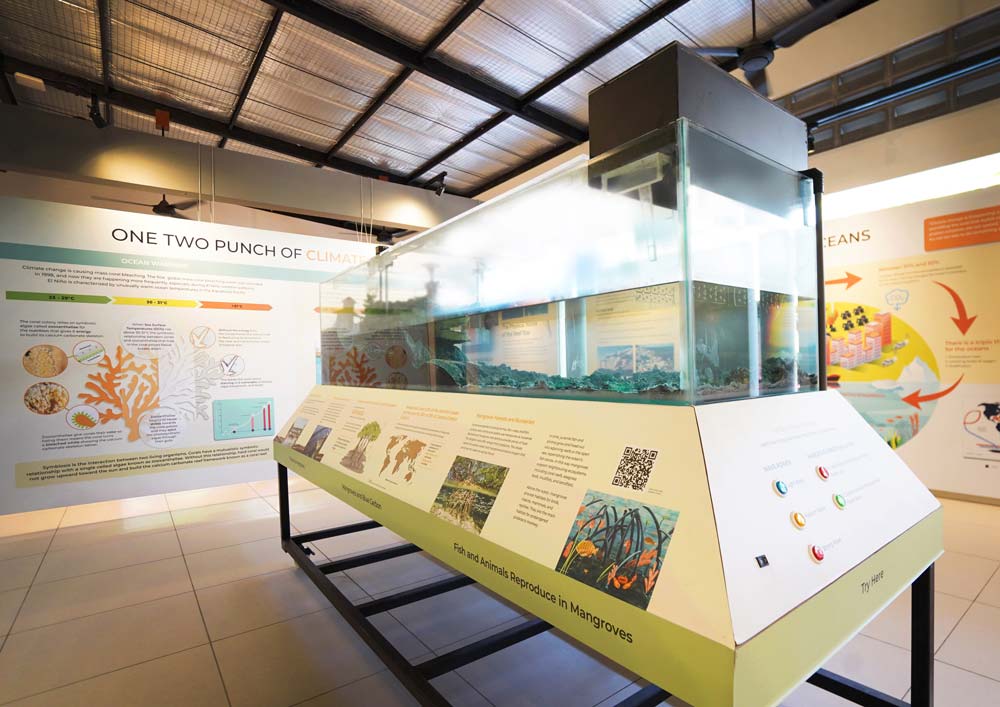
Based out of their Center for Marine Conservation in Sanur, Bali, CTC’s main objective is turning the latest science into on-the-ground conservation action. Their programmes provide individuals, organisations and communities with the knowledge, tools and frameworks needed to protect coastal and marine environments. “For me, marine conservation is about people who care for nature and take responsible action. Education and learning at all levels is pivotal to inspire and inform people how to conserve our oceans,’ she said.
The centre in Sanur is a testament to this: a holistic education facility that encompasses a diving pool, training pavilions, a state-of-the-art and interactive exhibition hall and even a custom-built “Escape Room” for fun learning experiences. The non-profit foundation also helps to manage and develop MPAs across the region, including the Nusa Penida MPA, home to the iconic sunfish, manta rays, 290 coral species and 576 reef fish species.
Sintia Dewi
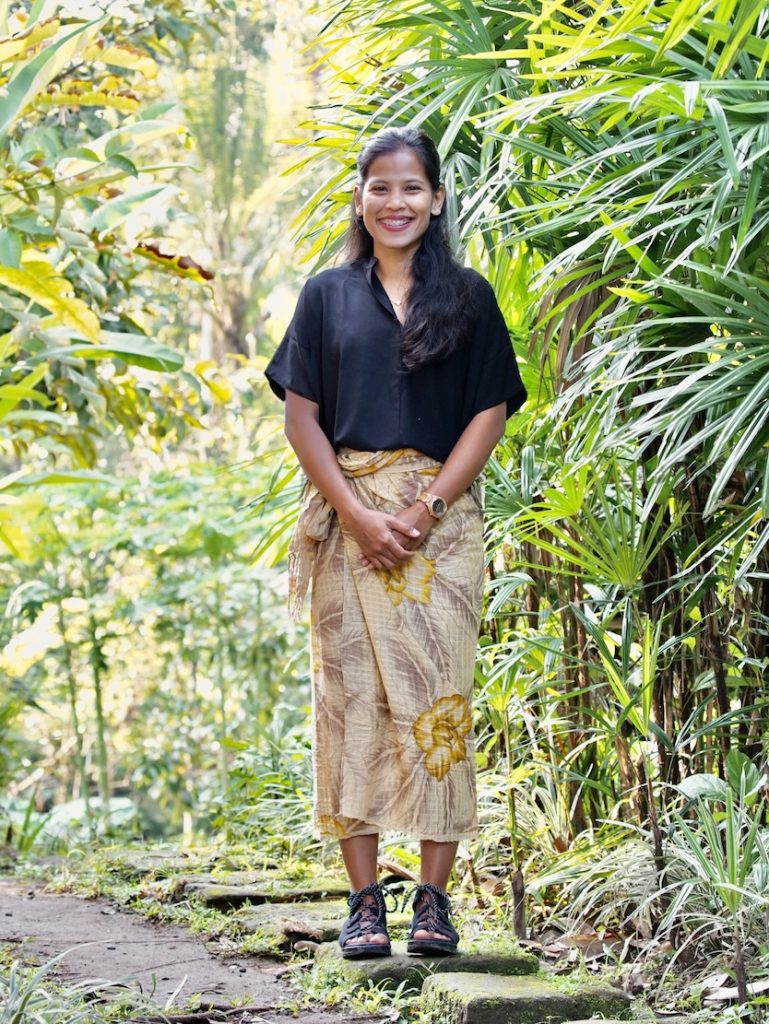
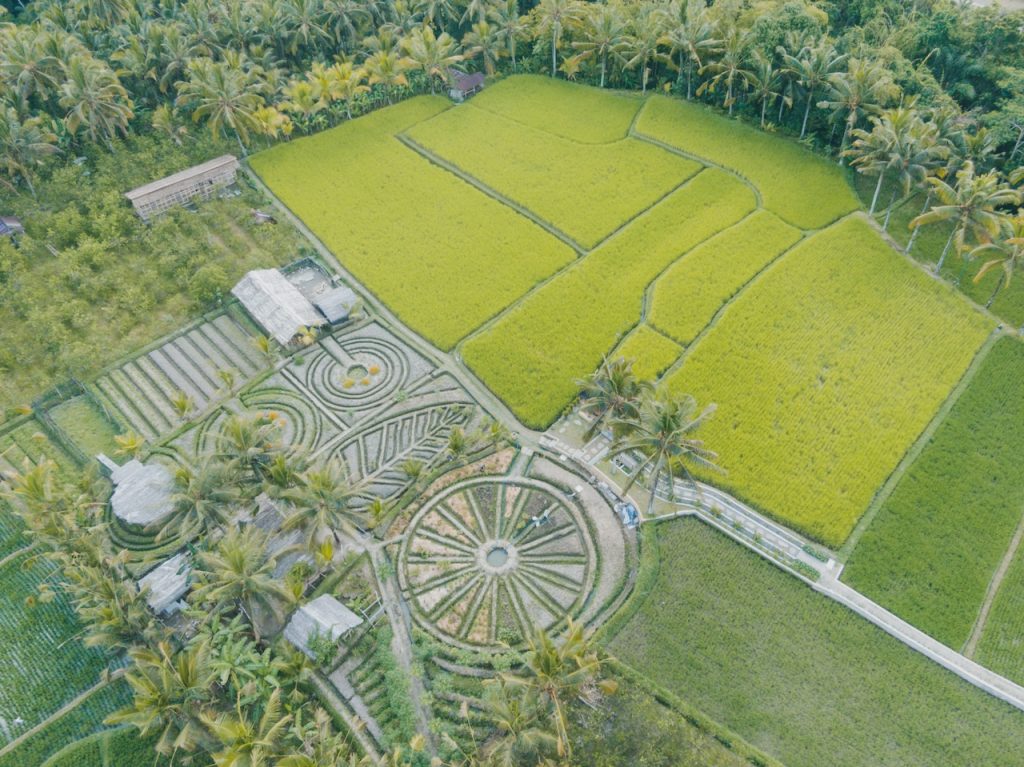
Best-known for its conservation of the critically endangered Bali starling, Begawan now addresses three different missions: education, conservation and agriculture. These three pillars intersect at Begawan in Melinggih Kelod, Payangan, north of Ubud.
Begawan was founded in 1999 by Bradley and Debora Gardner, and focused on bringing Bali’s endemic bird species back from the brink of extinction through its Bali Starling Conservation Program. Over a hundred Bali Starlings have been released into the wild, facilitated by a strong conservation team.
The conservation initiative sparked a larger vision. Keeping the released birds safe required community engagement and education was seen as a way of reaching the younger generation. In 2018, Begawan built a dedicated Learning Centre which operates six days a week providing free after-school education programs for 67 local children. The centre provides progressive, Bali-centric education addressing rural community needs, and crucially, fosters care for the environment amongst its youth.
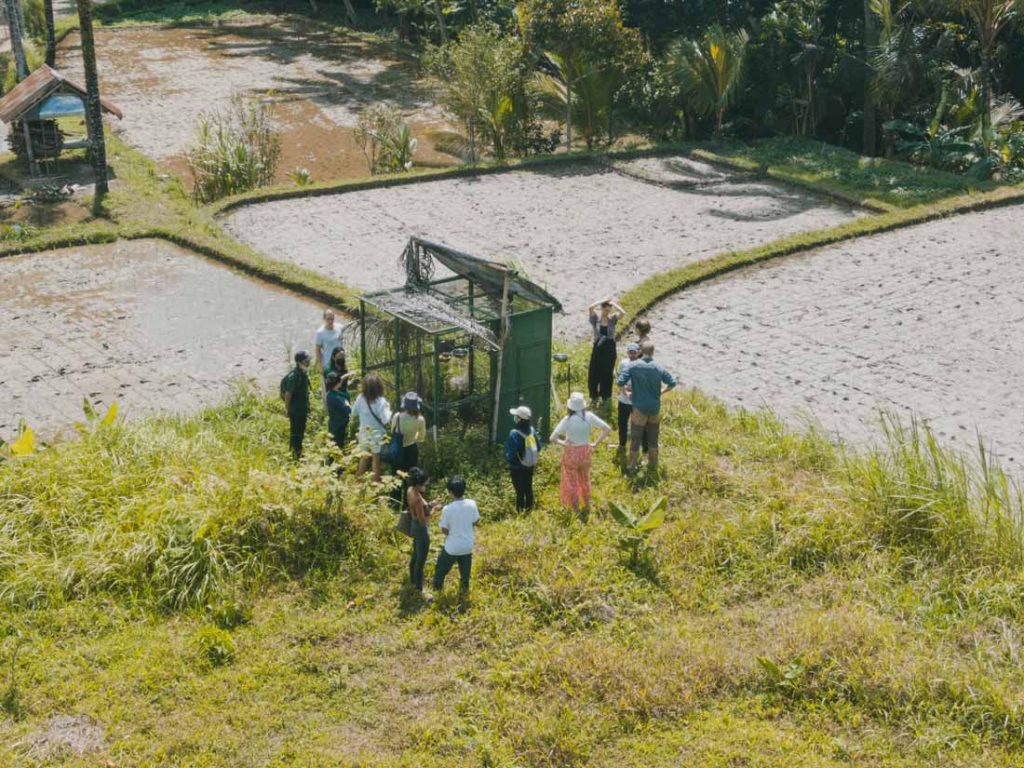
The most recent initiative, responding to the issue of disappearing rice fields, is Begawan’s regenerative farming project, bringing back heritage rice, where age-old and all-natural methods are being reintroduced to farmers. This has brought bio-diversity back to the soil, providing the farmers increased earnings. Begawan is also actively involved in field research to drive best practice in rice cultivation with an emphasis to reduce methane emissions and water in the rice fields.
At the middle of this complex system is Sintia Dewi, in her capacity as the Managing Officer, and the team who weave these threads together, organising Begawan’s ecosystems. Hailing from West Sumatra, Tia, as she is better known, puts her education and community development background into practice. Tia is a young, passionate team member who has a goal to create a mutually beneficial relationship between the environment and people, so that through a harmonious balance, humans can both contribute to the environment and benefit from it.
The latest venture is a sustainable restaurant, Begawan Biji, cooking school and visitor centre located at the farm, where visitors are able to explore various activities, discover local produce and learn how this impressive, intricate vision of Begawan’s sustainable ecosystems comes together!

